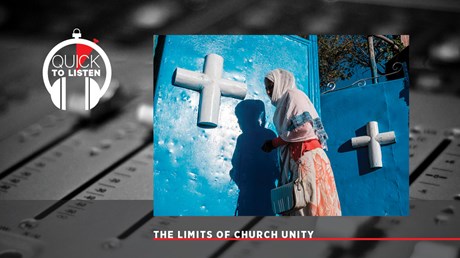A shared faith isn’t sufficient in preventing ethnic violence.

In 2019, prime minister Abiy Ahmed won the Nobel Peace Prize. The committee noted that he had given amnesty to thousands of political prisoners, discontinued media censorship, fought against corruption, and legalized previously outlawed opposition groups. Ahmed also received attention for his religious reconciliation work which included mending a split in the Ethiopian Orthodox Church and bringing together Christians and Muslims. The son of a Muslim father and Orthodox mother, Abiy is a Protestant Pentecostal, or “Pentay,” like many Ethiopian politicians.
But, as of late, things have been tense. Last November, CNN reported that scores of people were murdered by whom survivors believe are soldiers from nearby Eritrea, whose presence they blame on the Ethiopian government. The massacre occurred in the Tigray region, the northern part of the country and one which shares a border with Eritrea. It came just weeks after the Tigrayan People’s Liberation Front attacked Ethiopian military forces and the central government responded violently in return.
Ethiopia has a long and extensive Christian history. The second country in the world to officially adopt Christianity, for 15 centuries, the Ethiopian Orthodox Tewahedo Church has survived estrangement from Rome, the spread of Islam, and repeated colonialization attempts. There’s also millions of people, like Abiy, who identify as Protestant.
Desta Heliso was born and raised in Ethiopia and has served as lecturer and director of the Ethiopian Graduate School of Theology. He currently resides in London but continues to coordinate the Centre for Ancient Christianity and Ethiopian Studies at EGST in Addis Ababa. He is also a fellow of the Center for Early African ...
from Christianity Today Magazine
via


.gif)

.gif)
.gif)
